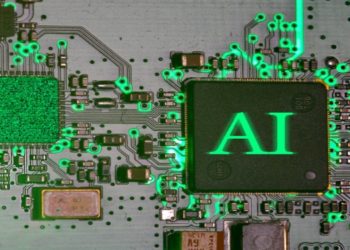Northern Ireland’s business community faces a hidden productivity crisis as ageing laptops silently drain efficiency from offices across Belfast, Derry/Londonderry, and beyond. Recent data from tech support providers reveals that slow laptop performance costs UK businesses an estimated £3.5 billion annually in lost productivity, with Northern Ireland’s growing tech sector particularly vulnerable to these performance bottlenecks. iPhix Tech NI, the region’s leading device repair specialist with locations in Belfast and Lisburn, reports a 40% increase in laptop performance complaints from corporate clients across Ulster, highlighting a widespread issue that many businesses mistakenly accept as inevitable.
The problem extends far beyond simple frustration, affecting everything from Belfast’s financial services firms to Derry’s creative agencies and the tech startups clustered around the Titanic Quarter. When laptops take minutes to boot, applications freeze during client presentations, or video calls stutter during crucial meetings, the cumulative impact on Northern Ireland’s economy becomes substantial. Understanding whether performance issues stem from hardware limitations or software problems – and knowing when professional intervention beats replacement – could transform how businesses from Antrim to Armagh manage their technology assets through comprehensive laptop repair services.
The Real Cost of Slow Laptops in Northern Ireland’s Business Landscape
Performance degradation rarely happens overnight. Instead, laptops gradually slow through a combination of software bloat, hardware wear, and thermal stress that compounds over months and years. For businesses operating across Northern Ireland’s diverse economy – from manufacturing firms in Ballymena to tourism operators in the Causeway Coast – these performance issues translate directly into competitive disadvantage.
Consider the typical knowledge worker in Belfast’s Laganside district who loses 15 minutes daily to slow boot times, application launches, and system freezes. Across a 250-day work year, that’s 62.5 hours of lost productivity per employee. For a company with 50 employees, the annual loss exceeds 3,000 hours – equivalent to hiring 1.5 additional full-time staff members. These calculations don’t account for the frustration factor that affects employee morale and the professional embarrassment when systems fail during client interactions.
The financial services sector, particularly strong in Belfast, faces unique challenges where slow laptops directly impact trading systems, risk calculations, and regulatory reporting. When Excel models take minutes to recalculate or database queries timeout, the consequences extend beyond productivity to potential compliance issues and missed market opportunities. Similarly, creative agencies from Lisburn to Londonderry depend on responsive systems for design work, video editing, and client presentations where performance issues can damage professional credibility.
Hardware vs Software: Diagnosing the Real Problem
Software Issues That Mimic Hardware Failure
Many laptop performance problems that seem hardware-related actually stem from software issues that professional cleaning can resolve without expensive replacements. Windows registry corruption, accumulated temporary files, and conflicting background processes create bottlenecks that make even powerful hardware appear inadequate. Northern Ireland businesses often replace laptops unnecessarily when software optimisation would restore performance at a fraction of the cost.
Malware and cryptominers represent increasingly common performance killers that businesses might not detect. These malicious programs consume processing power for criminal purposes, slowing legitimate applications while potentially exposing sensitive data. Tech firms in Derry’s digital hub and financial services companies across Belfast face particular risks from sophisticated malware that traditional antivirus might miss.
Driver conflicts and outdated firmware create subtle performance issues that compound over time. When graphics drivers conflict with Windows updates, or network adapters operate with years-old firmware, the resulting instability manifests as general slowness rather than specific error messages. Professional technicians identify these conflicts through systematic testing that typical IT support might overlook.
Hardware Limitations Requiring Physical Intervention
Genuine hardware issues demand different solutions ranging from simple upgrades to component replacement. Thermal throttling – where processors slow themselves to prevent overheating – affects laptops across Northern Ireland’s varied working environments. Offices in converted Victorian buildings around Queen’s University often lack adequate ventilation, while industrial sites from Antrim to Newry expose laptops to dust that clogs cooling systems.
Storage bottlenecks represent the most common hardware-related performance issue. Traditional hard drives in older laptops simply cannot match the data transfer speeds modern applications expect. When businesses from Bangor to Enniskillen run contemporary software on laptops with mechanical drives, the resulting performance gap creates frustration that no amount of software optimisation can resolve.
RAM limitations become apparent as applications grow more demanding. Modern web browsers consuming gigabytes of memory, video conferencing software requiring constant resources, and security software running continuous scans combine to exhaust available memory. When laptops resort to virtual memory on slow drives, performance degrades dramatically, particularly noticeable during multitasking scenarios common in modern business environments.
Professional Solutions for Performance Restoration
Immediate Interventions
Professional laptop restoration begins with comprehensive diagnostics identifying all contributing factors to performance degradation. Technicians use specialised software to benchmark current performance, creating objective baselines for improvement measurement. This data-driven approach ensures solutions target actual problems rather than assumptions, particularly important for businesses requiring documentation for IT budget justifications.
Deep cleaning of both software and hardware provides immediate improvements for many systems. Software cleaning removes accumulated temporary files, optimises startup programmes, and eliminates unnecessary background processes. Physical cleaning addresses dust accumulation in cooling systems, replaces degraded thermal paste, and ensures proper ventilation. These interventions often restore 30-50% performance improvement without any hardware changes.
Strategic Hardware Upgrades
Solid-state drive (SSD) installation represents the single most impactful upgrade for older laptops. Replacing mechanical drives with SSDs transforms system responsiveness, reducing boot times from minutes to seconds and eliminating the grinding delays during application launches. For businesses across County Down and County Antrim still operating laptops with traditional drives, this upgrade delivers immediate, noticeable improvements that users appreciate daily.
Memory upgrades address multitasking limitations that frustrate modern knowledge workers. Upgrading from 8GB to 16GB or 32GB RAM enables smooth operation of multiple applications, essential for professionals juggling email, browsers, video calls, and specialised software simultaneously. The investment typically costs far less than laptop replacement while extending useful device life by years.
Battery replacement might seem unrelated to performance, but failing batteries can cause system instability and force power-saving modes that throttle performance. Many businesses from Portrush to Portadown don’t realise their laptops run slower on battery power due to aggressive power management compensating for degraded cells. New batteries restore full performance mobility, crucial for Northern Ireland’s increasingly flexible workforce.
Sector-Specific Performance Requirements
Financial and Professional Services
Belfast’s position as a leading financial services hub creates specific performance demands. Trading applications require minimal latency, risk management systems demand reliable processing power, and compliance software needs consistent availability. Performance issues in these environments don’t just affect productivity – they can impact regulatory compliance and client confidence. Professional optimisation ensures these critical systems maintain required performance standards.
Creative and Digital Agencies
Northern Ireland’s creative sector, from Belfast’s Cathedral Quarter to Derry’s digital cluster, depends on responsive systems for design work, video editing, and web development. When Adobe Creative Suite stutters, render times extend, or development environments lag, creative flow disrupts and deadlines jeopardise. Performance restoration tailored to creative workflows prioritises graphics performance, colour accuracy, and storage speed that generic IT support might overlook.
Education and Public Sector
Universities from Queen’s to Ulster, along with government departments across Northern Ireland, manage large laptop fleets with varying performance requirements. Academic staff need reliable systems for research and teaching, administrators require responsive office applications, and students depend on consistent performance for learning. Bulk performance restoration services address these diverse needs efficiently, maximising value from existing technology investments.
Prevention Strategies for Sustained Performance
Maintaining laptop performance requires proactive management rather than reactive repairs. Regular maintenance schedules – monthly software cleaning, quarterly physical cleaning, and annual thermal paste replacement – prevent the accumulation of issues that eventually mandate major interventions. Businesses establishing these routines report 40% fewer performance complaints and significantly extended device lifespans.
User education plays a crucial role in performance preservation. Training staff to recognise early warning signs, avoid resource-heavy applications when unnecessary, and maintain good digital hygiene prevents many issues. Simple practices like regular restarts, avoiding desktop clutter, and closing unused applications make substantial differences in sustained performance.
Investment in quality hardware from the outset pays dividends through extended performance longevity. Business-grade laptops designed for commercial use typically maintain performance better than consumer models, justifying higher initial costs through reduced lifetime ownership expenses. Northern Ireland businesses increasingly recognise that cheap laptops prove expensive when performance issues impact productivity.
When Replacement Becomes Necessary
Despite best restoration efforts, some laptops reach points where replacement makes more economic sense. Machines over five years old with multiple failing components, obsolete processors unable to run current software efficiently, or systems with motherboard failures often cost more to repair than replace. Professional assessment helps businesses make these decisions objectively, avoiding both premature replacement and futile repair attempts.
The transition to Windows 11 creates additional replacement pressure as older hardware fails to meet new system requirements. Businesses across Northern Ireland face decisions about upgrading versus replacing machines that work adequately but cannot run supported operating systems. Professional evaluation identifies which machines merit upgrade investment versus replacement, optimising technology spending across device fleets.
Conclusion
Laptop performance issues need not be accepted as inevitable consequences of ageing hardware. Through proper diagnosis distinguishing software from hardware issues, targeted interventions addressing root causes, and strategic upgrades extending device life, businesses across Northern Ireland can restore laptop performance cost-effectively. The key lies in professional assessment that identifies optimal solutions balancing performance improvement with investment requirements.
As Northern Ireland’s economy increasingly depends on digital productivity, maintaining optimal laptop performance becomes essential for competitive advantage. Whether operating from Belfast’s tech corridors, Derry’s creative quarters, or rural locations across Ulster, businesses deserve technology that enhances rather than hinders their operations. Professional laptop restoration services provide the expertise and solutions that transform sluggish systems into productive assets, supporting Northern Ireland’s continued economic growth through optimised technology performance.
The choice between living with slow laptops, premature replacement, or professional restoration ultimately impacts more than IT budgets – it affects employee satisfaction, operational efficiency, and business competitiveness in an increasingly digital marketplace.












































































